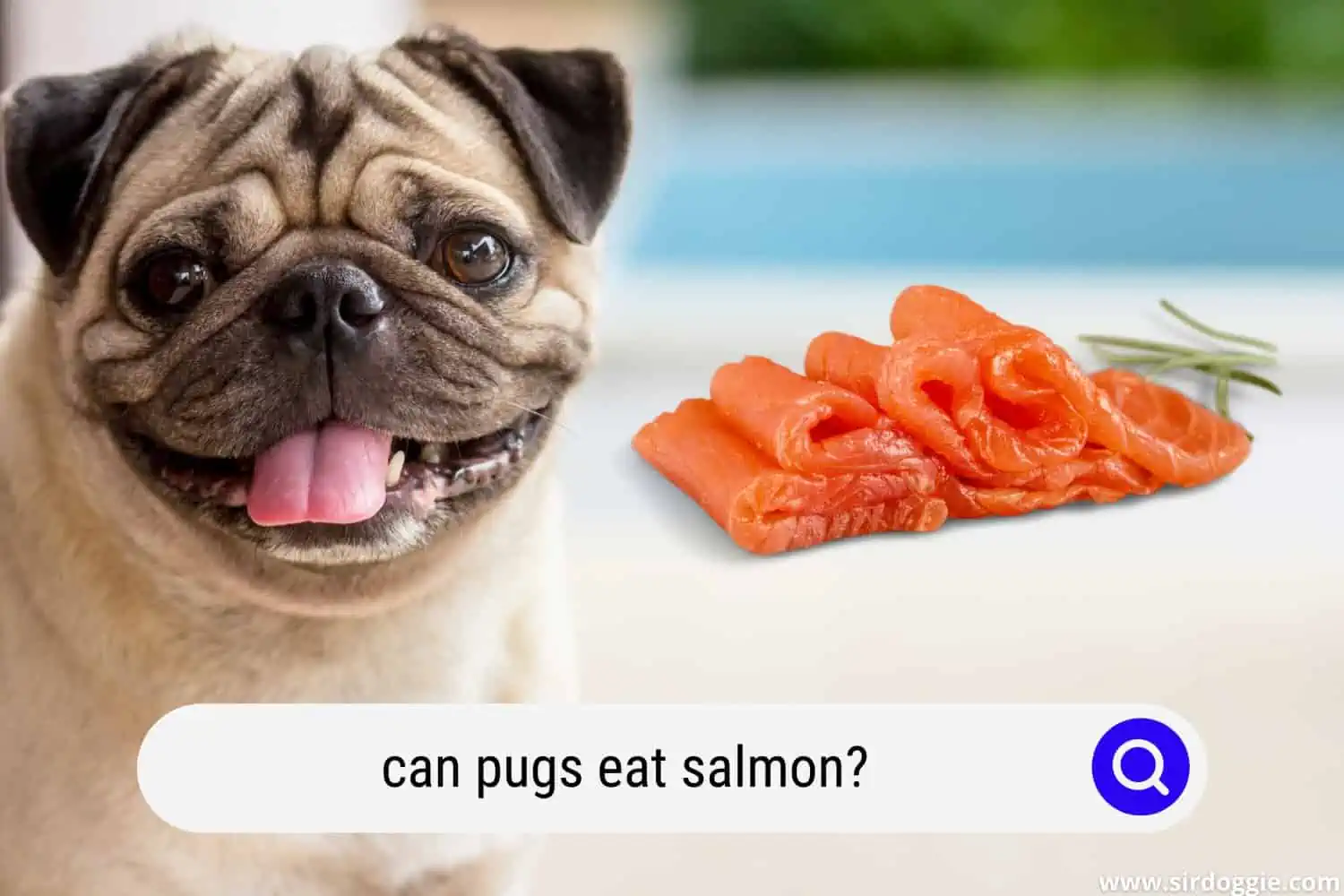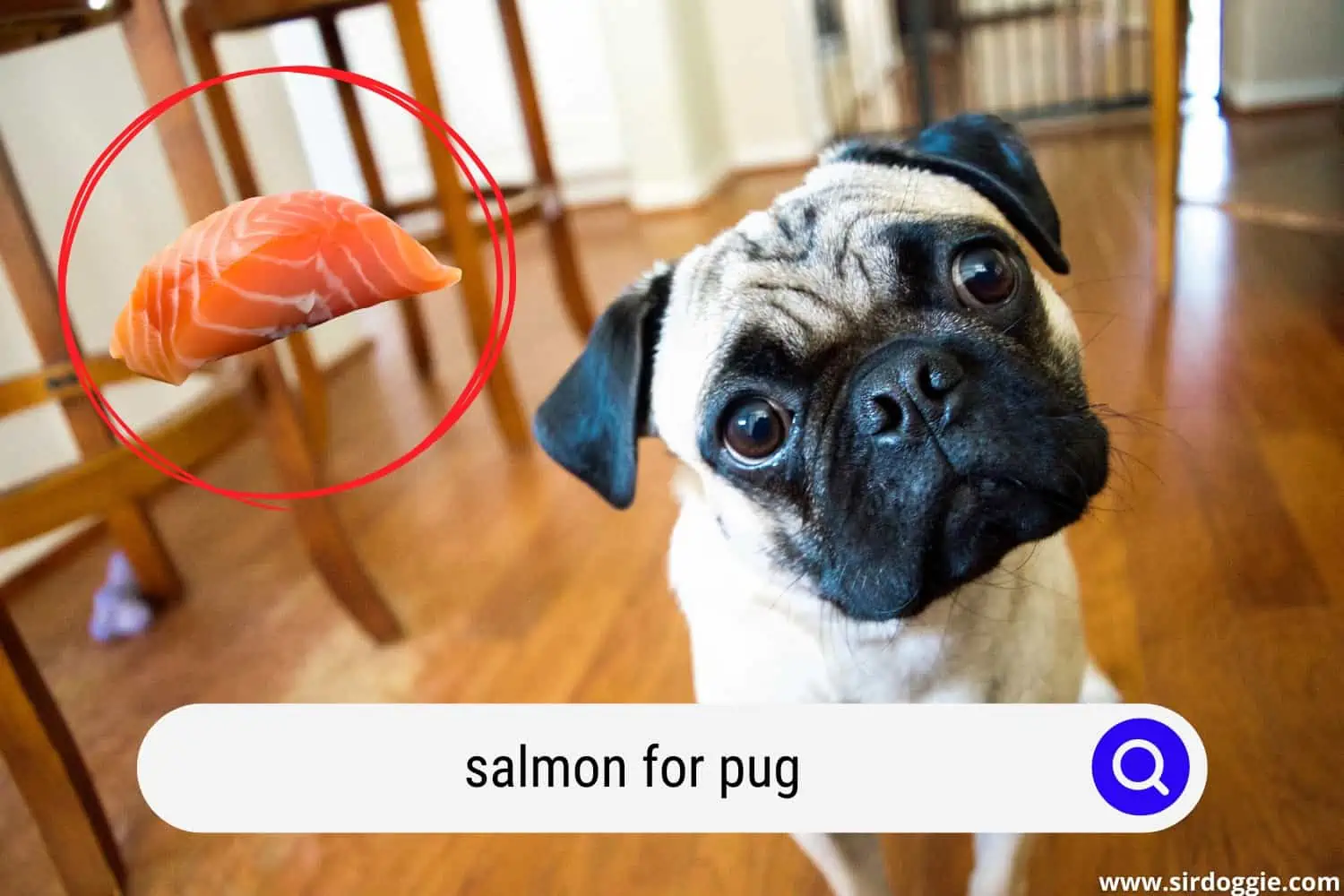Can Pugs Eat Salmon? – The Epic Fish-Eating Dog
What happens when the world’s best dog, the Pug, is fed salmon in its regular diet?
The history of fish-eating dogs is an interesting one—and some of the oldest dog breeds still exist today. However, the history of the dog the evolution of the dog, and its ability to eat fish can be traced back even further than many people realize.
While people may think of fish as an exclusive animal, there is a very long history of domesticated animals eating them. In fact, the very first known domesticated fish-eater was a Pug named Togo.

So can pugs eat salmon?
The Rise Of The “Fish-Eating” Dog
In the 1950s, the American pet industry began developing dog food in which fish was added to the diet of dogs who had never eaten fish before. This was the first step toward making fish part of a dog’s regular diet and eventually replacing it with meat. It took decades to get there, but the transition to fish-eating dogs was a slow one.
As the number of pet dogs in the U.S. continues to grow, so too does the number of dog owners who feed their pets a variety of fish, including catfish, carp, and salmon. The number of these fish-eating dog owners has increased by more than 50 percent since 2012, according to a survey conducted by the International Pet Food Association (IPFA). But just how safe is it for dogs to eat fish? And what do they get out of it?
Related Reading: Why Does My Dog Smell Like Fish?
When It Comes To Eating Fish, Why Are Dogs So Different From Humans?
Most dogs can’t seem to resist the smell of fish, which is why some owners have started to use their dogs to bait fish for sport fishing. The truth is that many dog owners don’t realize just how different they are from their canine companions when it comes to eating fish, and many dogs eat more fish than their owners. Why do some dogs love fish so much? The answer is simple: dogs are carnivores. That’s right. They are.
If you are planning to feed your dog fish, then make sure you follow some basic tips. For instance, you should always make sure that your dog is eating the whole fish. Don’t just give him the tail or the fins. Always give him the whole fish. If it doesn’t like the smell of fish, you can always keep your dog away from the table.
Can Pugs Eat Salmon?
I know this seems like a silly question. But if you were asked this question, what would your answer be? If you’re like most people, you’d probably say no, pugs can’t eat fish. After all, they’re dogs and don’t typically consume meat (the primary source of protein in most pet foods).
However, dogs can and do eat fish, and there are many benefits to doing so. Fish is one of the most complete diets for dogs. It’s also loaded with essential nutrients, including vitamins B12 and D, as well as iron, iodine, and selenium.
Can Pugs Eat Salmon Skin?
If you’re wondering if pugs can eat salmon skin, the answer is not always “yes. This is a good example of why the “it depends” answer is often the best one to give to owners when trying to explain how the food interacts with the digestive system. In this case, you don’t need to know what happens inside the pug’s digestive system to know that it would be unwise to put salmon skin into it.
If you look at the anatomy of a fish, you’ll notice that its skin is made up of tiny scales, or plates. Pugs’ mouths are just small enough to fit through the spaces between the scales, and so they can eat the skin. The flesh underneath the scales is edible and nutritious, but not very palatable and digestible.
Is A Boiled Salmon For Dogs A Good Choice?
The first thing to know is that the benefits of feeding your dog salmon are real. It’s important to be aware of a few things before you start to feed it to your dog. Salmon is a nutritious food that can help your dog to develop healthy bones and teeth.
This is because of the high protein and omega-3 fatty acid content. When you buy this food for your dog, make sure to look for salmon that has been dry-packed. Dry-packed salmon contains no added salt and therefore it won’t cause any of your dogs to become hypertensive. If you are going to cook this food for your dog, do so on low heat. This will ensure that there is no chance of it becoming overcooked.
When you cook it on low heat, it should take about 15 minutes to be done. However, if you don’t like your dog eating fish, then you shouldn’t buy it for them. Some people prefer to feed their dogs chicken or beef as opposed to salmon. However, salmon is more beneficial to dogs than meat because it contains less fat. If you want to feed your dog salmon, make sure that you buy it in small amounts and feed it twice per day.
How To Poach Salmon For Dogs?
Cooking salmon for your dog requires a little more thought and planning than the standard, “pop it in the microwave” method. You’ll want to cook it slowly over low heat. For example, if you use a saucepan, cook it for at least 10 minutes on the lowest setting. If you’re using a slow cooker, cook it for about 30 minutes.

Conclusion
In conclusion, it has been reported that pugs have a natural fish-eating ability that has existed for many years in the breed, as they were bred to eat meat from farms, and as such are not only used as companion animals but also as hunting dogs. However, this ability has now been passed down to some pugs in today’s pet population. This has led to some owners choosing to buy their pugs with a fish-eating gene.
Can pugs eat salmon and love it? Yes, they absolutely can.
Related Reading: Is Fish Food Bad For Dogs?
FAQs
Which fish is good for pugs?
There are many varieties of fish that are good for dogs. Tuna, salmon, whitefish and cod are all good fish for dogs.
How many times a day should a pug eat?
The pug should eat two times per day when its young. If the pug is adult, we recommend to feed it one to two times per day.

Family Dog Expert Author
Hi there! I’m Stuart, a devoted dog lover and family dog expert with over a decade of experience working with our furry companions. My passion for dogs drives me to share my knowledge and expertise, helping families build strong, loving bonds with their four-legged friends. When I’m not writing for SirDoggie, you’ll find me hiking, playing with my beautiful dog, or studying music.